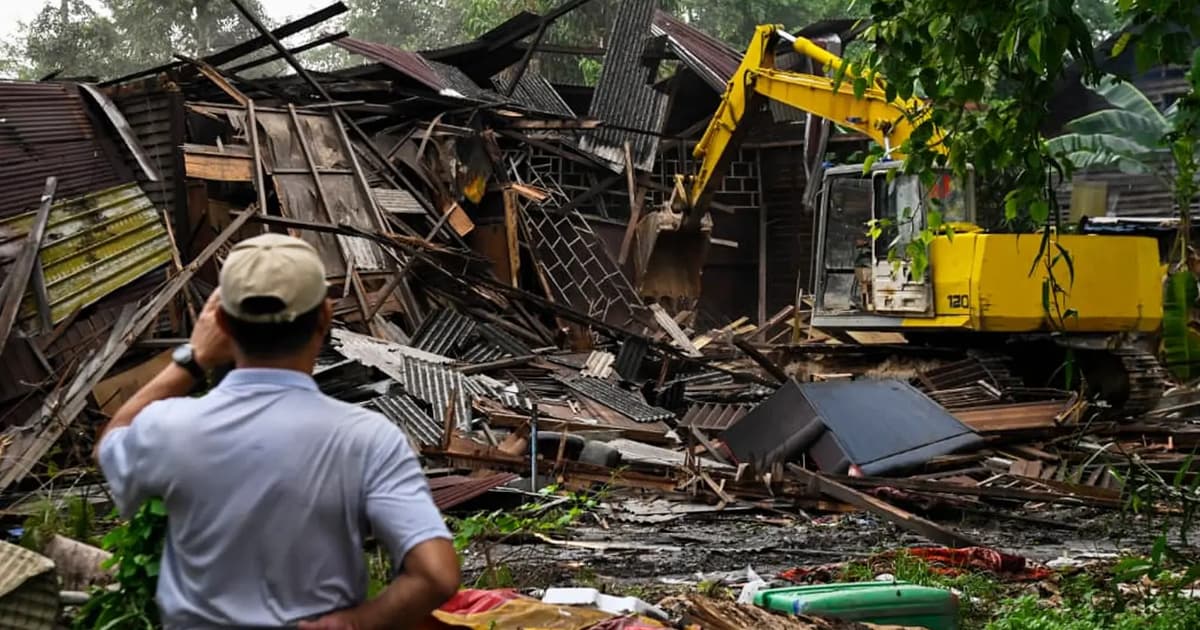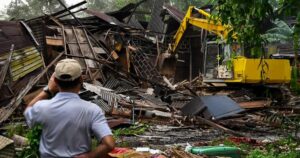
From Charles Santiago
For a resident of Kampung Jalan Papan in Pandamaran, Klang, this is the only home she’s ever known. Her grandfather built their house before she was born, plank by plank, from scraps scavenged at a nearby factory. Now, at 17, she faces the unthinkable: watching it all vanish under the weight of promises made by people who have never set foot on these muddy roads.
They called it a “squatter area”. But the people of Kampung Jalan Papan paid every month for water and electricity, voted in elections, and sent their children to nearby schools. They were part of Malaysia’s social fabric, yet invisible in its policies. What they didn’t have was proof that they belonged, and in Malaysia, sometimes that’s all it takes to lose everything.
“I’m afraid we’ll have nowhere to go,” she said quietly. “Why is the government not doing anything when it has made us wait decades? Are we only useful come elections?”
This community has been fighting for recognition and justice for three decades. The land they occupied once belonged to the Selangor government until it was handed over to a state agency who subsequently sold it to a private developer.
The state agency was tasked with building houses for the residents. That promise was broken.
According to Parti Sosialis Malaysia, over 30 houses, including occupied ones, were demolished in the last two days. The developer, who had once shown detailed plans for permanent two-storey homes, has now made a U-turn, and the state remains conspicuously silent.
Adding insult to injury, the High Court ruled in favour of the developer, labelling the residents “squatters”, a word used far too easily to erase decades of human existence and struggle.
Yet no written judgment has been issued after almost a year, meaning the residents will not be able to appeal since there are no grounds of judgement. Injustice, in this case, is not only being delivered; it is being institutionalised.
Where is the accountability? Where is the moral courage from those in power? The Selangor government, long praised as Malaysia’s most developed and progressive state, could have intervened to protect its own written promises made to the people. However, it washed its hands of responsibility and now feigns indifference despite a judicial technicality that prevents the poor from even appealing their case.
The hypocrisy runs deep. How can a government that champions Madani values – compassion, inclusivity, and justice – stand by while bulldozers tear down homes and lives?
Development means nothing if it is built on betrayal. Progress is meaningless when the state’s own people are left without roofs, rights, or recourse.
Across the world, the working class is rising against governments that have abandoned them.
In Kenya, mass protests over punitive taxes forced the government to withdraw its finance bill after citizens flooded the streets. In France, millions marched against pension reforms that would push ordinary workers into deeper exhaustion. In the US, automotive workers staged a historic strike and won major wage increases after decades of corporate exploitation.
These movements have one message in common: when the state fails to protect its people, the people will protect themselves. Malaysia is no exception. The anger brewing in Kampung Jalan Papan mirrors a growing disillusionment with political elites who speak of empathy but act with indifference.
If Malaysia intends to lecture the region about peace, rights, and justice, it must first confront its own failures at home. Stop the evictions. Honour the agreement. Deliver the homes that were promised. Anything less is not leadership but betrayal dressed up as development.
The Selangor government must remember that justice delayed, denied, and bulldozed is not merely a local issue; it is a national disgrace.
Kampung Jalan Papan is not just a patch of land. It is a mirror. And what it reflects today is a government that has forgotten who it serves.
Charles Santiago is the former MP for Klang.
The views expressed are those of the writer and do not necessarily reflect those of FMT.






